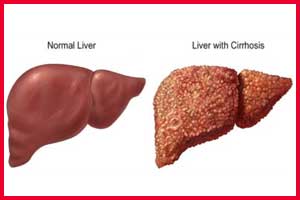- Home
- Editorial
- News
- Practice Guidelines
- Anesthesiology Guidelines
- Cancer Guidelines
- Cardiac Sciences Guidelines
- Critical Care Guidelines
- Dentistry Guidelines
- Dermatology Guidelines
- Diabetes and Endo Guidelines
- Diagnostics Guidelines
- ENT Guidelines
- Featured Practice Guidelines
- Gastroenterology Guidelines
- Geriatrics Guidelines
- Medicine Guidelines
- Nephrology Guidelines
- Neurosciences Guidelines
- Obs and Gynae Guidelines
- Ophthalmology Guidelines
- Orthopaedics Guidelines
- Paediatrics Guidelines
- Psychiatry Guidelines
- Pulmonology Guidelines
- Radiology Guidelines
- Surgery Guidelines
- Urology Guidelines
Long-term albumin administration prolongs life in decompensated cirrhosis

Long-term Human Albumin (HA) administration prolongs overall survival and might act as a disease-modifying treatment in patients with decompensated cirrhosis, according to a study recently published in the journal The Lancet. HA administration significantly reduced overall mortality rate, thus improving 18-month survival.
Caraceni P and his associates conducted a study to find out the efficacy of the long-term use of human albumin(HA) in the management of cirrhosis with ascites.
The hEpatic ciRrhosis (ANSWER) study designed was an investigator-initiated multicentre randomized, parallel, open-label, pragmatic trial which included 33 academic and non-academic Italian hospitals.
The study randomly assigned patients with cirrhosis and uncomplicated ascites who were treated with anti-aldosteronism drugs (≥200 mg/day) and furosemide (≥25 mg/day) to receive either standard medical treatment (SMT) or SMT plus HA (40 g twice weekly for 2 weeks, and then 40 g weekly) for up to 18 months. The primary endpoint was 18-month mortality.
Out of 440 patients that were randomly assigned, 431 were included in the modified intention-to-treat analysis.
Key findings:
- 38 of 218 patients died in the SMT plus HA group and 46 of 213 in the SMT group
- Overall 18-month survival was significantly higher in the SMT plus HA than in the SMT group resulting in a 38% reduction in the mortality hazard ratio
- 46 (22%) patients in the SMT group and 49 (22%) in the SMT plus HA group had grade 3-4 non-liver related adverse events.
The study concluded that long-term use of HA administration improves survival in patients with decompensated liver, ameliorates the management of ascites, reduces the incidence of severe complications of the disease and need of hospitalization stay and finally improves the quality of life.
Cirrhosis of the liver is a leading cause of disability and mortality worldwide. Decompensated alcohol-related liver disease (ARLD) occurs when there is a deterioration in liver function in a patient with cirrhosis, which presents with jaundice, coagulopathy, ascites, and hepatic encephalopathy and ascites is the accumulation of protein-containing (ascitic) fluid within the abdomen.
For more information log on to https://doi.org/10.1016/S0168-8278(17)30449-X

Disclaimer: This site is primarily intended for healthcare professionals. Any content/information on this website does not replace the advice of medical and/or health professionals and should not be construed as medical/diagnostic advice/endorsement or prescription. Use of this site is subject to our terms of use, privacy policy, advertisement policy. © 2020 Minerva Medical Treatment Pvt Ltd